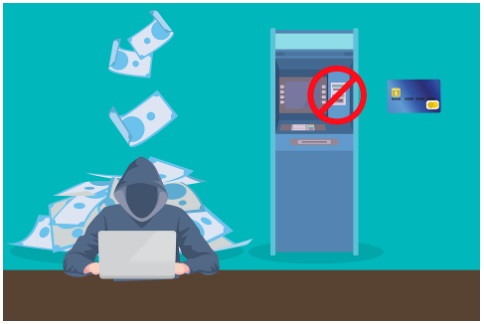Things You Can Do to Protect Yourself from Cyberattacks
Whether you have an online shop or a non-profit organization, cybersecurity should be on the top of your list, especially if there are a lot of things at stake. We've gathered a few tips and tricks from pros that can help you ensure that you are protected from most cyberattacks.

Stay Updated
This is one of the simplest, yet overlooked, things that you can do to make sure your system is ready to protect itself against malicious attacks Your first line of fire is the internal security of the system and its integrity; in other words, staying safe in the first place is far better than trying to defend against a cyberattack. Any device that has an internet connection can be prone to cyberattacks, and unfortunately, this is not a spawn of a paranoid train of thought. Make sure that all the devices you frequently use are updated to their latest software version. Developers push frequent updates to keep up with any loopholes or exploits that can damage the integrity of the system, so avoid leaving your device dated with old software.
Educate Your Employees
A solid structure is as strong as the weakest link. Even if you have a whole team of professional IT, you can't expect them to do all the work. Educating your employees on the dangers and nature of cyberattacks is a very important step in creating a business-wide firewall that can help you avoid problems in the long run. You can go through this link to see what the foundations of security awareness training are built upon and how it can benefit your business. You wouldn't believe the number of people who can be oblivious to the damage of cyberattacks. You can train your employees on the best methods to protect their data and the company's confidential data to ensure that you don't have to deal with a Trojan-horse scenario.
Be Wary of Third-Party Applications
While a lot of third-party applications can be very beneficial for your business, you should never pursue them without due research. Your business and personal devices should be cleared of any third-party applications that aren't directly related to your business, not to mention vetted and researched well before installation. Whether it's intentional or not, third-party apps can leave vulnerabilities and backdoors that attackers use to gain access into your system, wreaking havoc in your security setup. The potential dangers that these vulnerabilities pose spans data leaks to a complete takeover. You need to scan your devices for any third-party apps that you do not completely trust.

Change Passwords Frequently
A lot of people take their passwords for granted until they suddenly find themselves in the midst of a full-on cyberattack. If you own a business, cracking your password should never be one of the options that cybercriminals use to gain access. The problem with passwords is that they are obtainable through various methods, making it hard to expect the type of attack that you'll be facing. You should ensure that your passwords aren't only strong with good parameters of safety against guessing or brute-forcing, but also frequently changed. Unfortunately, a lot of people prefer leaving their passwords untouched for the longest time because they can often forget it, but that creates more problems than it solves. Make sure you have a secure system in place that helps you keep your passwords organized and well-protected to avoid such a hassle in the future.
Get Familiar With Social Engineering Concepts
If you are unfamiliar with social engineering in the cyber world, it's the psychological manipulation of individuals to get them to unintentionally leak confidential information to the attacker. The problem with this sort of attack is that it's not about how technically advanced your IT systems are, but rather how familiar you are with social engineering techniques and methods. Whether it's a fake link that's designed to look like the original one or an email that's asking for confidential information, always double-check the FTC's tab of ongoing scams. As you become more familiar with how attackers try to fool their victims, you'll be warier of attempts that play on the naïveté of the recipients.
There is no doubt that the reliance on the internet has merited a lot of benefits across a huge spectrum of industries. A lot of individuals and entities take their cybersecurity for granted, especially low-profile businesses, but the nature and frequency of cyberattacks are increasing at an alarming rate that makes it hard to rest assured that you've covered such a wide frontier. Always remain vigilant when it comes to protecting your digital data.
You should read it
- ★ Protect Android devices by sending unspecified applications to Google
- ★ How to revoke third-party access to a Microsoft account
- ★ How to use third party app in Facebook Messenger
- ★ Apple applies strict laws with VPN ad blocking tools on third-party applications
- ★ How to create a beautiful year-end party backdrop